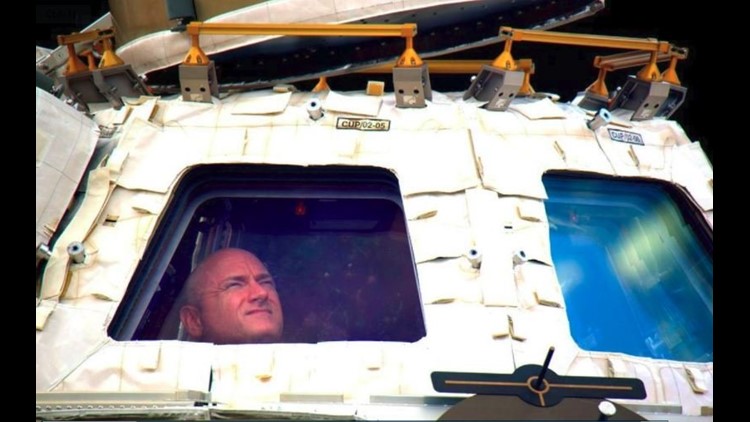Astronaut Scott Kelly set a record for the longest single spaceflight in U.S. history, and now, two years later, NASA has released new research about what the nearly yearlong stay in orbit did to his body. It confirms preliminary findings that Kelly experienced changes to his gene expression — although experts say reports that Kelly’s DNA changed in space are an exaggeration.
Kelly spent 340 days on the International Space Station in 2015 to 2016, along with Russian crewmate Mikhail Kornienko.
To better understand the potential health impact of a year of weightlessness in space, NASA conducted a groundbreaking study comparing Kelly to his identical twin brother Mark, a retired astronaut who remained here on Earth.
The twin brothers underwent medical testing before, during, and after lengthy mission.
One of the more interesting findings of the study concerned what some have dubbed the “space gene.” Researchers discovered that while 93 percent of Scott Kelly’s genes returned to normal after landing, the remaining 7 percent did not. NASA called the amount of change “very minimal,” but said it could point to possible longer-term changes in genes related to his immune system, DNA repair, bone formation networks, hypoxia (oxygen deficiency), and hypercapnia (excessive carbon dioxide in the bloodstream).
Derrick Pitts, chief astronomer and planetarium director at the Franklin Institute, told CBS News that understanding these factors becomes especially important when considering the potential for longer-term human space exploration and the health effects that could have on the body. A trip to Mars, for example, could mean astronauts spending at least 3 to 4 years in space.
“We do not yet clearly understand how the space environment fully affects the human body,” Pitt said on CBSN, “and of those changes, how do we mitigate them and can we see a correction if we come back to a normal Earth environment?”
He offers the hypothetical that if humans suffered long-term health issues because of the way the genes expressed themselves following two years in space, that would drastically impact plans for future missions.
“What that would mean would be that we would have to abandon the idea of the human exploration of the solar system because everything else is more than 600 days away,” he said. “So that would make a major change in how we think about exploring the solar system, exploring space, and a change in understanding who we are and what we can do as explorers.”
Of course, we are still years away from having such knowledge, since Kelly’s year in space is the longest time period for which researchers have this kind of data.
Pitts also explained that changes in gene expression aren’t that uncommon even here on Earth. NASA describes gene expression as “how your body reacts to your environment,” and a huge variety of everyday factors — from the amount of exercise a person gets, to the type of diet they eat, to which drugs or toxins they’re exposed to — can have an impact.
“Let’s take twins. We can have a twin on the west coast and a twin on the east coast and what will happen is that those twins will react differently to their environments, so the way their genes are expressed will be different,” Pitts said.
NASA issued a statement Thursday offering clarifications on the research after some reports claimed Kelly’s DNA had actually changed in space.
“Mark and Scott Kelly are still identical twins; Scott’s DNA did not fundamentally change,” NASA said. “What researchers did observe are changes in gene expression, which is how your body reacts to your environment. This likely is within the range for humans under stress, such as mountain climbing or SCUBA diving.”
Susan Bailey, a professor at Colorado State University and a lead researcher of the twins study, said she was shocked to see such headlines.
“It was news to all of us too,” Bailey told CBS Denver. “I think it was a very innocent comment. An innocent tweet that just exploded. It really caught people’s attention and imagination.”
On March 10th Kelly tweeted out an article saying his DNA had changed. He joked that even he was surprised.
Bailey said her research, and nine other studies, aren’t finalized yet and should be released from NASA later this year.
“It’s really just the beginning of finding out what space flight does to people,” she said. “We’re still trying to figure out what that means and what caused it and if there’s any kind of long-term health risk associated with that.”



